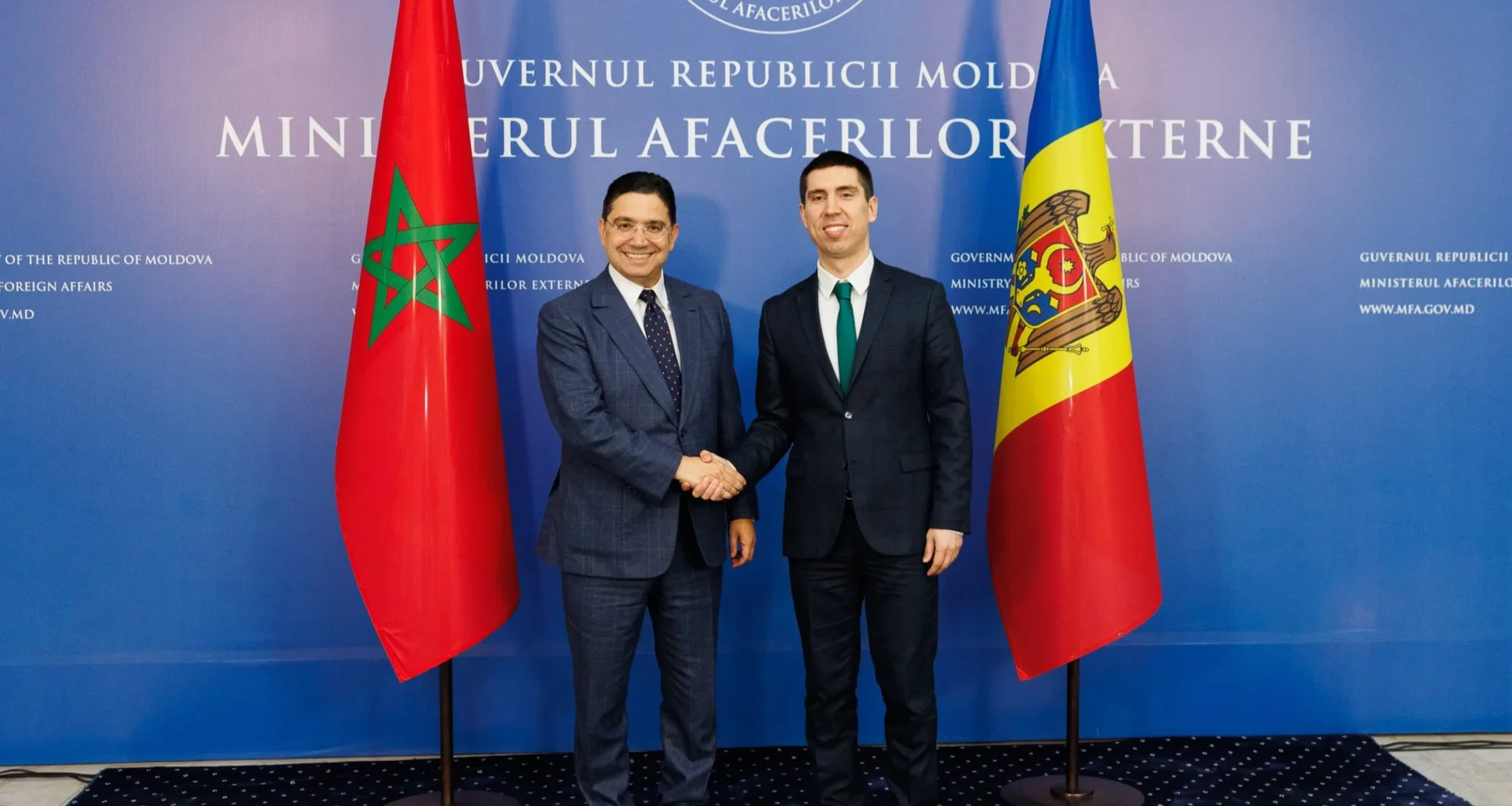Doha – Moldova has thrown its support behind Morocco’s autonomy initiative for the Sahara, declaring it “the most serious and credible basis” for resolving the regional dispute, the country’s Foreign Ministry announced Tuesday in Chisinau.
During talks with Moroccan Foreign Minister Nasser Bourita, Moldova’s Foreign Minister Mihai Popșoi voiced his country’s “full support for the sincere efforts” deployed by Morocco to resolve the Sahara issue.
The Eastern European country reiterated its backing for the UN-led process aimed at reaching a “just, pragmatic, durable and mutually acceptable” political solution.
Both ministers agreed on the UN’s exclusive role in the political process, reaffirming their support for Security Council Resolution 2756 (2024).
The resolution, they noted, placed emphasis on the parties’ role and responsibility in seeking a “realistic, pragmatic and durable” agreement based on compromise.
The two countries also pledged support for the UN Secretary-General’s Personal Envoy and his efforts to advance the political process based on relevant Security Council resolutions.
Just today, Estonia reasserted its backing of the plan, with Foreign Minister Margus Tsahkna calling it a “serious and credible basis” for settlement. The announcement came during Nasser Bourita’s landmark visit to Tallinn — the first by a Moroccan foreign minister.
Also today, France reiterated with renewed clarity its steadfast backing of Morocco’s sovereignty over Western Sahara following a meeting between Foreign Minister Nasser Bourita and his French counterpart Jean-Noël Barrot.
The Quai d’Orsay said that France’s position remains “unchangeable,” aligning with President Macron’s 2024 declaration that “the present and future of the region lie within Moroccan sovereignty.”
Speaking from New York, Morocco’s UN envoy Omar Hilale told Medi1TV that “the United States is determined to close the Western Sahara file.”
He expressed hope that “we will celebrate the final end of this conflict at the 50th anniversary of the Green March with our Algerian neighbors” in November, adding that more than 110 countries now back Morocco’s position.
UN envoy Staffan de Mistura called for capitalizing on what he described as an “unprecedented impetus” to establish grounds for regional de-escalation.
During the Security Council meeting yesterday, he specifically recalled US Secretary of State Marco Rubio’s statements urging parties to “engage in discussions without delay, using Morocco’s Autonomy Proposal as the only framework to negotiate a mutually acceptable solution.”
Morocco, Moldova sign five cooperation accords
 Moroccan Foreign Minister Nasser Bourita met his Moldovan counterpart Mihai Popșoi Tuesday in Chisinau for cooperation talks.
Moroccan Foreign Minister Nasser Bourita met his Moldovan counterpart Mihai Popșoi Tuesday in Chisinau for cooperation talks.
The visit marked a watershed moment in Moldova-Morocco relations, as the two countries moved to strengthen their legal cooperation framework through five key agreements.
A memorandum on establishing political consultations between their foreign ministries aims to promote enhanced political dialogue, while a separate accord on economic diplomacy seeks to boost bilateral trade and investment.
The agreements also include provisions for exchanges between diplomatic institutes, cementing institutional ties between the two countries.
A reciprocal visa exemption accord for diplomatic, service, and special passport holders promises to facilitate official exchanges. The cultural cooperation memorandum rounds out the package, laying groundwork for deeper people-to-people ties.
In their joint declaration, the ministers saluted “the excellence of relations between the two countries” and pledged to intensify political dialogue across all sectors. The declaration put special focus on expanding economic, commercial, and cultural cooperation.
Popșoi and Bourita agreed to organize a comprehensive business forum targeting specific sectors with high partnership potential.
These include agriculture, fertilizers, energy, industrial outsourcing, digital technology, and cybersecurity. The ministers directed particular attention to exploring new avenues for cooperation between their diplomatic academies.
Both countries reaffirmed their commitment to playing constructive roles in maintaining regional stability, security, and peace. They voiced strong support for peaceful conflict resolution and respect for state sovereignty and territorial integrity.
The Moldovan minister recognized Morocco’s position as “a regional stability hub and growth catalyst in Africa,” while Bourita expressed support for Moldova’s EU accession negotiations and ongoing reform efforts.
The partners committed to pursuing regular consultations and coordination in international organizations to advance their shared interests.
